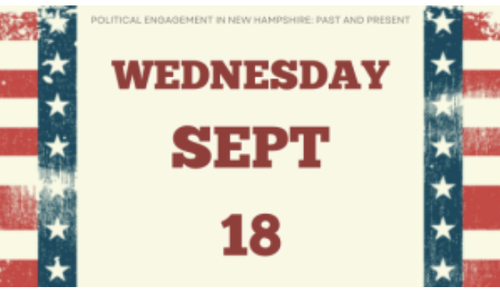SPEAKER: David W. Moore presents, Misreading the Public: The Failed Promise of Public Opinion Polling
Date and Time
Wednesday Sep 18, 2024
5:30 PM - 6:30 PM EDT
Location
Program begins at 5:30 p.m. in the Shaw Research Library of the Portsmouth Athenaeum at 9 Market Square in Portsmouth, NH. Reservations are required as seating is limited. Please call (603) 431-2538 to reserve. If unable to keep a reservation, please call again to release the seat for someone else. Attendance at programs is free for Athenaeum Proprietors, Subscribers and Friends. Guests and members of the public are welcome to attend the entire series by becoming a Friend of the Athenaeum for as little as $25 per year, payable at the door. Admission to an individual program is $15. David Moore is a Senior Fellow with the Carsey School at the University of New Hampshire and a two time winner of the EPPY (Editors and Publishers) Award for his writing about polls on iMediaEthics. He is also a periodic contributor of polling critiques to FAIR.org. He is a former Managing Editor of the Gallup Poll, and author of The Opinion Makers: An Insider Exposes the Truth Behind the Polls. Prior to working for Gallup, he was a professor of political science at the University of New Hampshire, where he founded the UNH Survey Center
Polling expert, David W. Moore presents, Misreading the Public: The Failed Promise of Public Opinion Polling. He will explore the origins of “scientific” public opinion polling, with George Gallup being the iconic representative of the early pollsters whose goal was to provide the voice of the people between elections. Since then, it has become obvious that the public’s voice is not so easy to measure. It’s difficult to find samples of respondents who accurately represent the larger population. Question wording is tricky, which often influences the very opinions pollsters are trying to measure. Unfortunately, the news media have taken over the polling enterprise with less concern with the quality of the “public opinion” they report than producing compelling news stories. The net result is that most public opinion polls about policy issues produce the “illusion of public opinion” rather than a reasonable estimate of how engaged the public is and what it is thinking.




